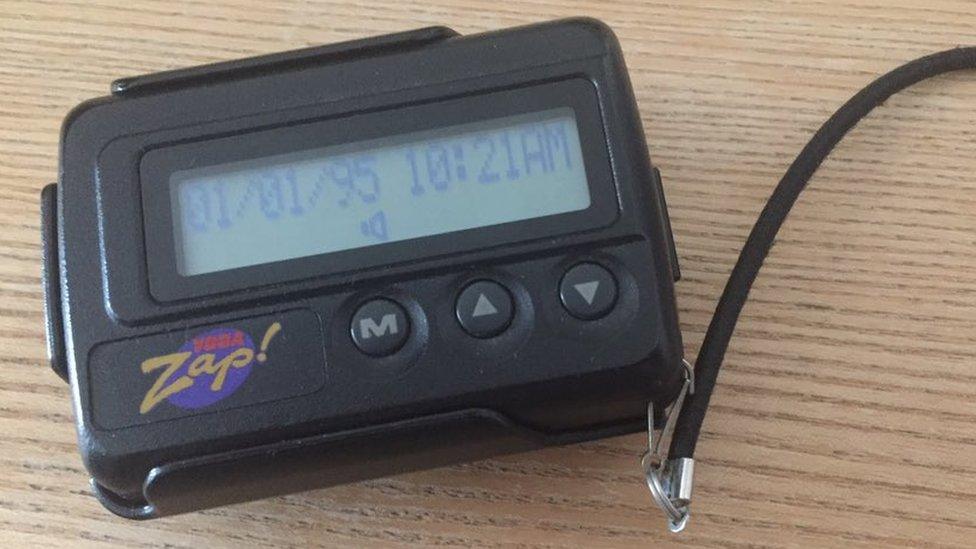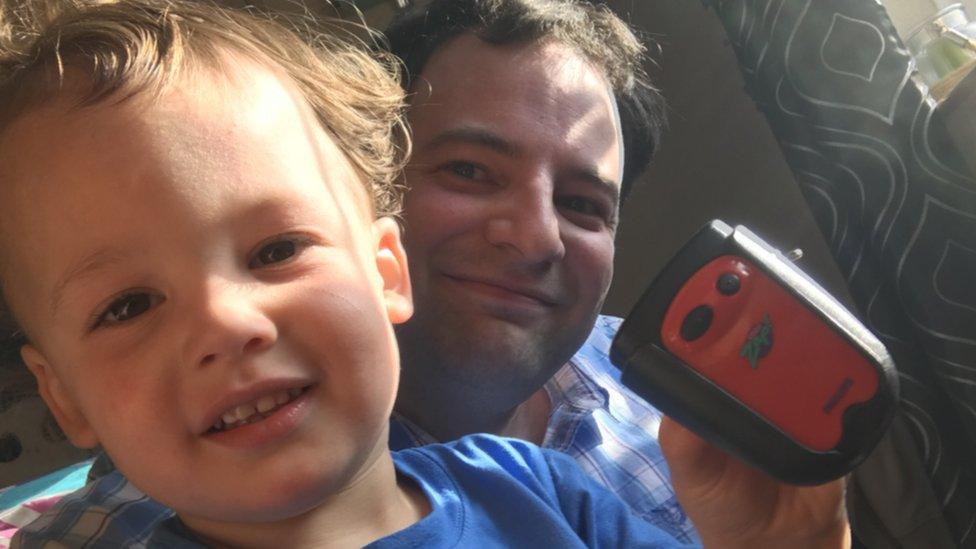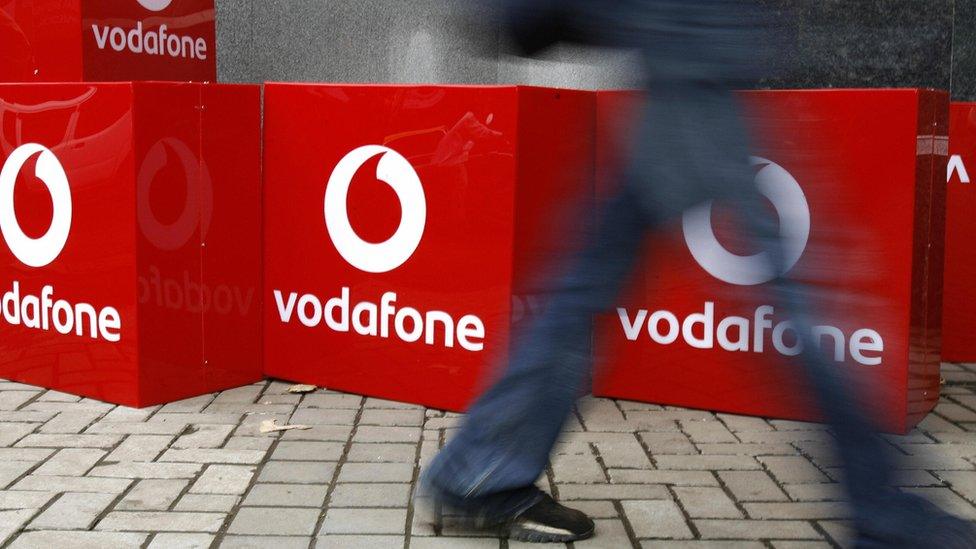My pager: The 'in thing' in the 90s
- Published

Vodafone has announced it will shut down its paging business after the competition watchdog threatened to investigate its sale to Capita.
Capita and Vodafone both supply paging services to customers that include emergency services and hospitals - but who else will be affected?
'Technological revolution'
Matt De Thomiere, a researcher from Worcester, told the BBC his pager was still going:
"In 1994 I worked in IT support and bought a pager. It was a technical revolution at the time. Back then, phones were really expensive. It was the first kind of text messaging.
"Mine is still going. I use it so people can get in touch with me via text or the operator. It's with me all the time.
"With the pager, you can be quite anti-social. You don't have to talk to people. It's good for meetings as you can feel it buzzing on your belt. Also, it's a different number to your phone, so you can keep your phone number separate.
"My pager seems to be stuck in 2013. Maybe the manufacturers had some sort of life span in mind. The correct date appears when I send a message but since 2013 it has stayed on the same year.
"If pager services stop then I'll move on to the smartphone. I already use one. It was good while it lasted."

"It's pretty much my son Luca's pager now!" says Bill Bennett
'Missed but not missed'
Bill Bennett, a financial assistant for people with learning difficulties in Taunton, Somerset, also has a pager that works, but has a different use these days:
"I got it when I was in middle school in the late 1990s. It was partly out of intrigue for any kind of new technology, and also because my mum needed to tell me when to come home.
"It took one AAA battery and lasted about six months. My friend and I went together to buy one when we were 14 years old. We spent £20 each, which was a lot of money back then. It cost about 30p to call it.
"The prices seem to have escalated. I think it's about £2.50 to phone it now. I leave myself a message every couple of years, just out of interest to see if it works. The same greeting I sent to the operator to read out still plays.
"It served me well, but everything has moved on and I now have a smart phone. My two-year-old son likes to play around with it as it lights up, beeps and he can't break it. It's worth its weight in gold.
"I think it will be missed in terms of nostalgia, but not missed when it comes to practicalities."
Compiled by Sherie Ryder, BBC UGC and Social News hub.
- Published10 May 2017
